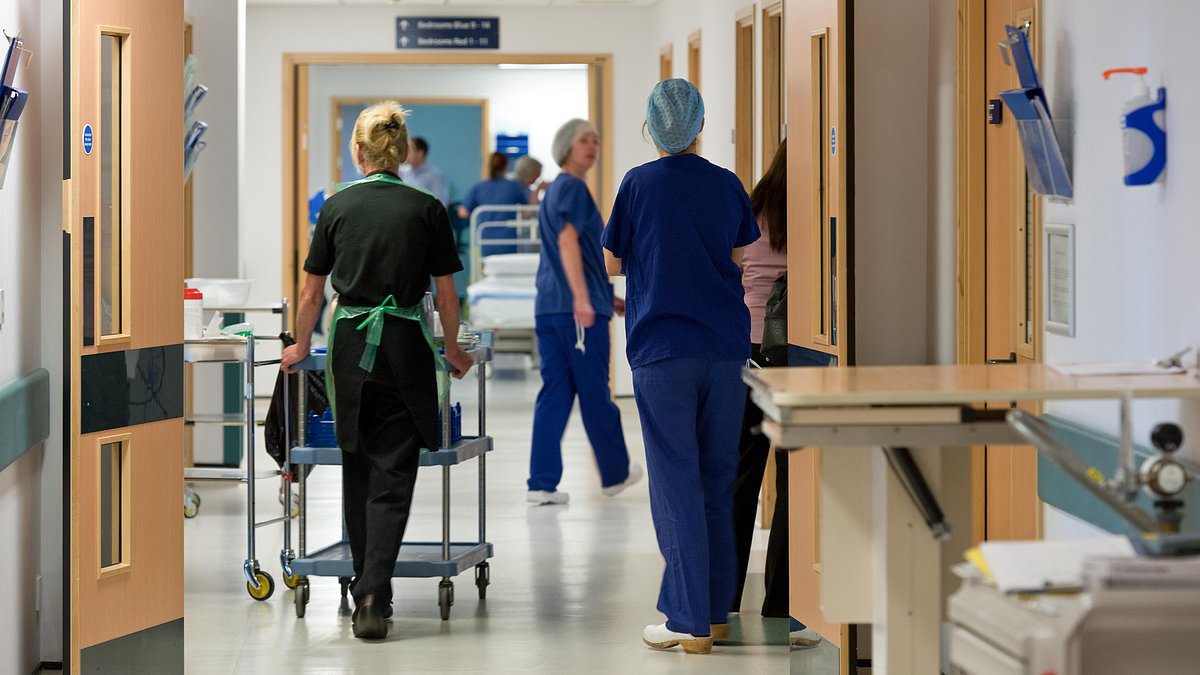
A record number of Brits ditched the NHS last year to go private amid lengthy delays.
Around 898,000 people in the UK sought private hospital treatment in 2023, figures revealed today.
It marks a seven per cent jump on the previous record of 836,000 set in 2022 and 15 per cent rise on admissions pre-pandemic.
Lengthy waits for routine NHS procedures have been blamed for the spiralling trend, with 7.54million treatments now in the queue, down slightly from a peak of 7.8million last September.
The £150billion-a-year service is creaking at the seams, with it battered by a staffing exodus, Covid-induced backlogs and a series of strikes.
Data on the number of Brits deserting the NHS was published by the Private Healthcare Information Network (PHIN), which shares information about performance and fees of private consultants and hospitals.
Northern Ireland saw the highest spike in private hospital admissions, up 56 per cent on 2022.
This was followed by Scotland, up 11 per cent. Admissions across Wales and England grew at a similar level, with seven and six per cent respectively.
The rise in demand for paid-for care is being driven by continuing growth in insured treatments — 621,000 up from 561,000 in 2022.
Experts believe this is because more businesses and households have turned to private healthcare plans to safeguard the health of employees due to the growing difficulties in getting treatment on the NHS.
Meanwhile, 278,000 admissions were self-funded by patients in 2023, up from 275,000 in 2022.
Self-pay admissions fell slightly by two per cent, however, in the fourth quarter of the year.
Experts have previously blamed this fall on the cost of living crisis and a reduction in UK private cosmetic treatments amid a surge in Brits travelling abroad for the likes of liposuction and breast augmentations.
PHIN chief executive, Dr Ian Gargan, said: ‘These record figures show the important role the private sector plays in the nation’s health, something acknowledged by the major political parties.
‘With NHS waiting lists at record levels, a growing number of people are looking for alternatives and choosing to use the private sector rather than risk prolonged waits and potentially seeing their health deteriorate.
‘The number of people using private medical insurance, or opting to “self-pay” for their procedure, has increased despite the difficult economic conditions over the past few years, demonstrating the importance people place on their health.
Dennis Reed, director of over-60s campaign group Silver Voices, also said: ‘These figures reflect the sorry state of the health service, with so many people having to resort to private healthcare to get the help they would have previously received on the NHS.
‘Our own surveys show a people are increasingly turning private out of desperation, with some using the last of their savings after enduring long waits — often in pain.
‘People tell us they have been waiting for care on the NHS and do not know when they will be seen or if they will be treated in corridors.
‘There will always be a market for private healthcare, but it should be a choice. Some people feel they are effectively being forced into it.’
Cataract surgery was the most popular private procedure (71,575) in 2023, followed by chemotherapy (66,210).
Hip and knee replacements, colonoscopies and endoscopies were other in-demand options.
This is despite some treatments costing more than £15,000. Some providers offer pay monthly deals.
Rachel Power, chief executive of the Patients Association, said: ‘We are strong supporters of patient choice when going private is a genuine choice.
‘The figures from the PHIN could be showing patients are turning to private care because they are unable to access the care they need on the NHS.
‘The Government needs to understand what’s driving these figures and ensure health inequalities do not worsen.’
Latest NHS data shows 309,300 people in England had been waiting more than 52 weeks to start routine hospital treatment at the end of March, up from 305,050 at the end of February.
The Government and NHS England have set the ambition of eliminating all waits of more than a year by March 2025.
But there were still 48,968 patients who had been waiting more than 65 weeks to start treatment at the end of March, down from 75,004 in February.
Last week the British Medical Association (BMA) also announced junior doctors in England will stage a six-day walkout from 7am on June 27 to 7am on July 2 — just 48 hours before the general election.
More than a million appointments and operations have been cancelled because of the wave of NHS strikes that kicked off in 2022.
The BMA claims its demands are for ‘pay restoration’ given that previous NHS salary rises for medics have not kept pace with inflation since 2008.
It marks the 11th walkout by the medics after their first strike in March 2023.
Source: Mail Online






